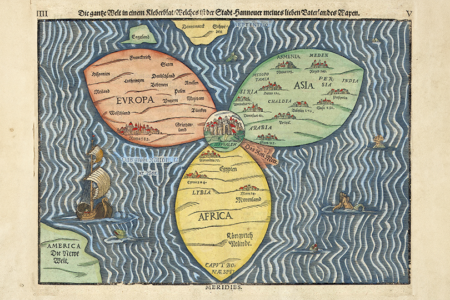The Song That Jesus Sang
Have you ever leaped out of bed in the morning, showered, dressed, felt the warm sun flooding through the window, contemplating your pleasant appointments for the day and then said, “THIS IS THE DAY WHICH THE LORD HATH MADE; I WILL REJOICE AND BE GLAD IN IT”?
Or, have you ever awakened and felt it was the kind of day to stay in bed — cold, wet and dreary outside, things to do and appointments to keep that you wished you didn’t have? And somehow through it all, with a stiff upper lip and bulldog tenacity, you managed to say, “THIS IS THE DAY WHICH THE LORD HATH MADE; I WILL REJOICE AND BE GLAD IN IT.”
With good intentions, but wrongly, one of the two above views is the way most of us interpret the familiar twenty -fourth verse of Psalm 118.
April in Israel is a lovely time of the year. The weather is pleasant, the grass green and the flowers a multi-colored carpet. But more than that, it is the time to remember and rehearse God’s redemption from Egyptian slavery.
It was in such an atmosphere and at such a time that Jesus observed the Passover with His disciples in the upper room (Matt. 26:20). At the conclusion of the meal (seder) they sang a hymn and went out to the Mount of Olives (Matt. 26:30).
We know the song they sang. For countless centuries during the observance of Passover Jewish people have sung the Hallel, which includes Psalms 113-118. At Passover particular emphasis is placed on two verses found in Psalm 118.
The stone which the builders refused is become the head of the corner (v. 22)
and
This is the day which the Lord hath made; we will rejoice and be glad in it (v. 24).
How astounding! At what appeared to be the darkest hour in human history, Jesus Christ sang of total victory. Jesus was Himself the Stone; Israel was the builder. They had officially rejected their Messiah, and within hours He would die the cruel death of a criminal on a Roman cross. But in that death He would establish and become the foundation of the Church.
Listen to His song once again:
The stone (Christ) which the builders (Israel) refused is become the head of the comer (the Church),
And then He continued,
This is the day which the Lord hath made; we will rejoice and be glad in it.
Jesus was not talking about any day, or every day — but a particular day. “This” was definitive — He was referring to the day He would die. No one could understand better than He the physical and spiritual anguish that was before Him. Not only was He nailed to the cross, but for the first time in eternity He was separated from the Father because humanity’s sin was placed upon Him. And from His innermost being He cried out “My God, my God, why hast thou forsaken me?”
It was concerning “that” specific, unique, never-to-be-repeated day in history that He sang, “THIS IS THE DAY WHICH THE LORD HATH MADE; I WILL REJOICE AND BE GLAD IN IT.” Jesus was there by His Father’s appointment. He was in the Father’s will — never mind His suffering — never mind His anguish. This day He would accomplish potential redemption for all of humanity, and so He sang, THIS IS THE DAY WHICH THE LORD HATH MADE; I WILL REJOICE AND BE GLAD IN IT.”
Child of the King, have you been going through deep waters — have the flames of affliction been burning hotly. Be not dismayed, the waters will not overflow you, and the flames will not kindle against you.
Has your husband been unkind; has a child brought heartache; is your body frail; is your mind disturbed; has a friend been untrue; are your physical needs acute?
If you are where you are in the will of God — if you have been submissive to your heavenly Father — then you too can sing, whatever your situation may be, “THIS IS THE DAY WHICH THE LORD HATH MADE; I WILL REJOICE AND BE GLAD IN IT.”







